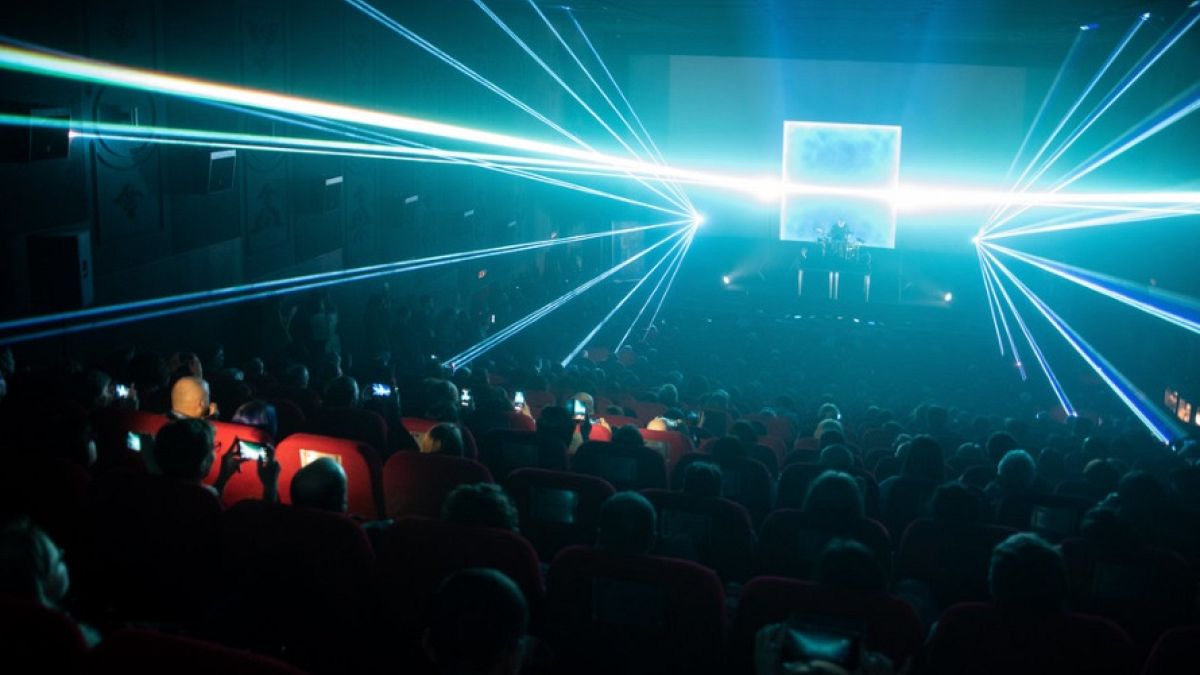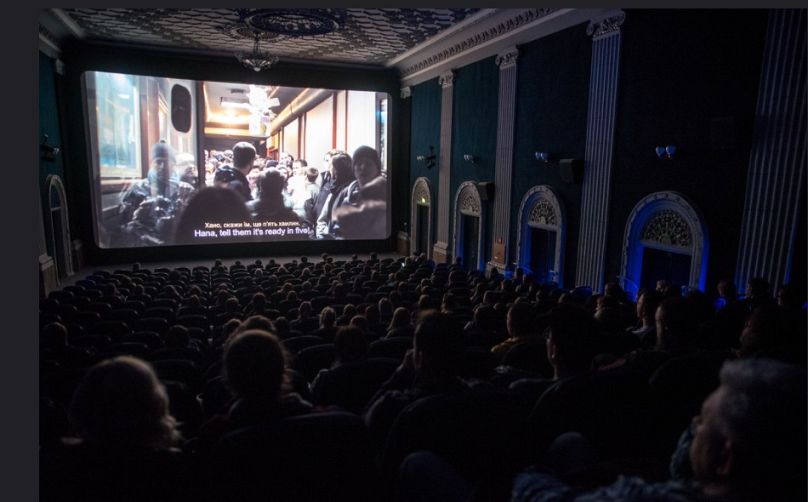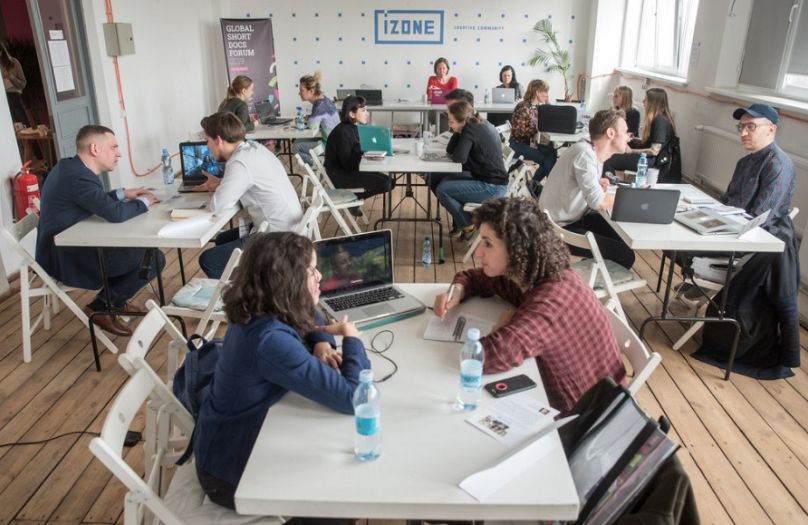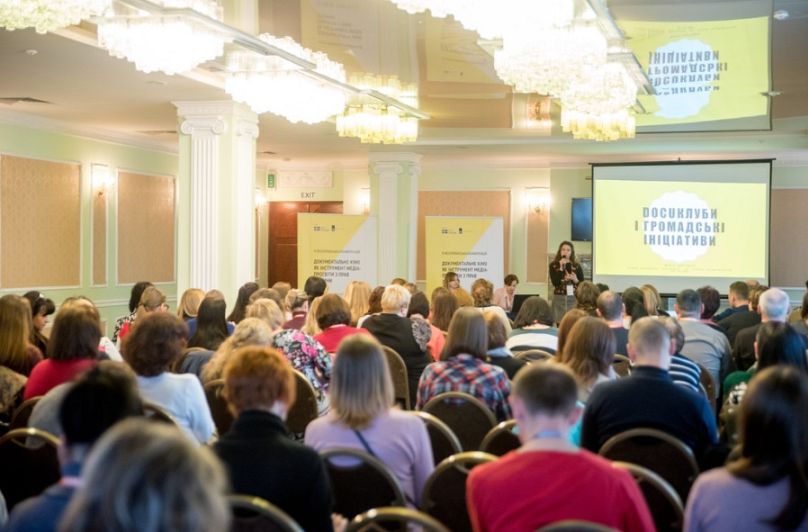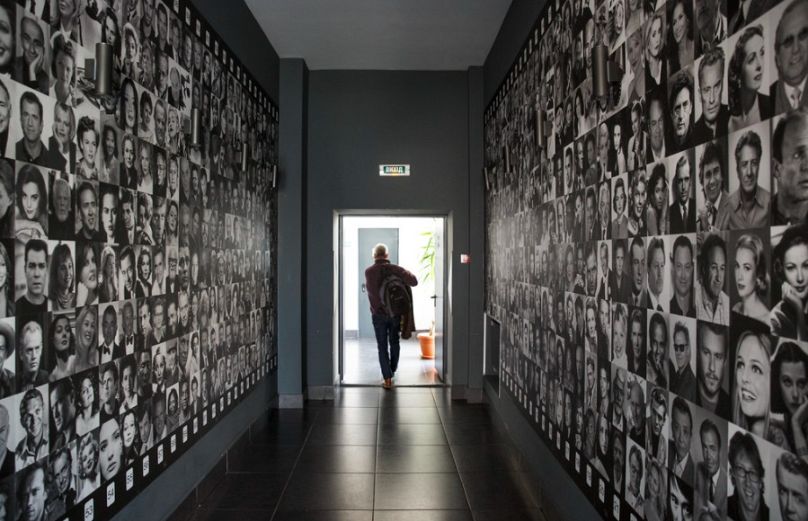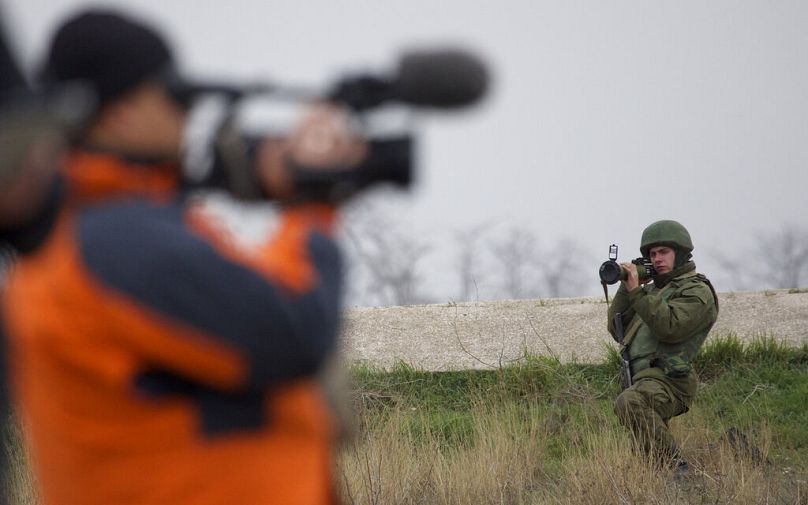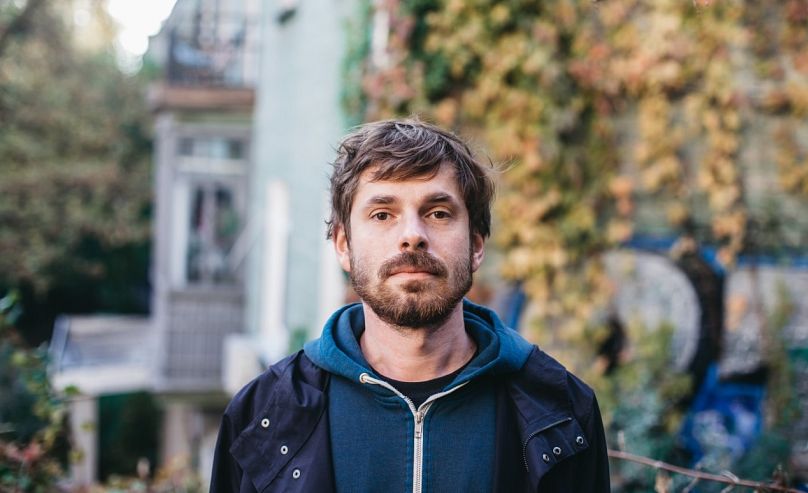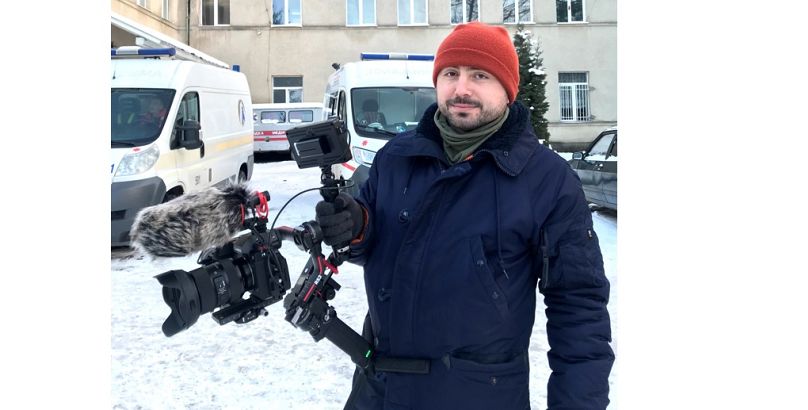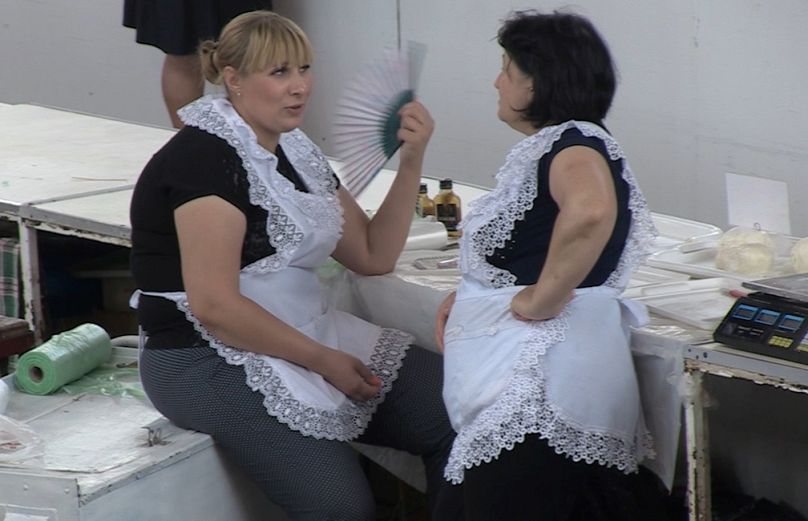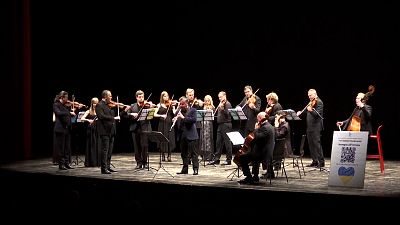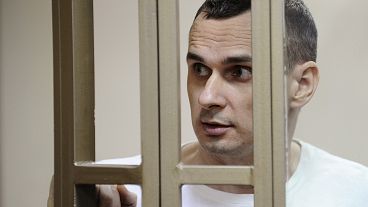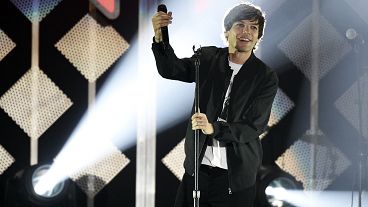Due to take place in Kyiv in March, the human rights-oriented Docudays UA festival is now postponed until the war ends. Organisers have instead launched a fundraiser and platform for documenting evidence of war crimes, while some of the headliners for 2022 have changed their plans.
By now, tickets should have been sold in their thousands. Flights should have been booked, catering and press passes lined up. Film buffs the world over were expecting to crowd into cinemas in Kyiv this month to watch some of the most lauded human rights-oriented films made by Ukrainians in 2021-22.
Instead, there was a tweet.
“Because the Russian Federation has started full-scale open hostilities on the territory of Ukraine, our team has decided to postpone Docudays UA until martial law is suspended and Russian aggression on the territory of Ukraine stops.”
Docudays UA is Ukraine’s single biggest film festival, first set up in 2003 as a platform for films that promote human dignity and engage audiences with civil and whole-society issues. Over the years it snowballed, typically pulling in pre-pandemic audiences of 20,000 to 25,000.
The 2022 programme was expected to start on March 25. But the day after the four national finalists were named online on February 23, Russia invaded Ukraine. Now the event is on hiatus, organisers scattered across Europe, and the filmmakers adjusting to life and work in an active conflict zone.
The auditorium lights may be out for now, but in the interim, the focus has changed. The Docudays UA team is raising funds to support filmmakers inside Ukraine, as well as a nationwide project to collect evidence of war crimes.
One of the 2021/22 directors is now covering an aspect of the war in western Ukraine. Another's work took on new resonance after one of his film's key protagonists was arrested. This week, Euronews caught up with those involved.
More than just a film festival
Darya Bassel is an Odessa-born film producer, programmer and head of industry at Docudays UA who also heads up DOCU/PRO, a project to boost the development of the Ukrainian film industry.
Since its inception, Bassel told Euronews, Docudays UA was meant to create a space for discussion and to raise the level of civil activity in Ukraine, as much as showcase individual films.
Since she arrived in 2011, she said, it has also become a launch-pad for Ukrainian filmmakers to develop and grow. “We realised we could help foster their connections with the international community, so we started acting like an industry platform.”
Ukrainian delegations have since been brought to Europe-wide events including IDFA, Visions du reel, DOKLeipzig, and Sheffield Doc/Fest, and industry events hosted in Kyiv.
In normal circumstances, later this month Kyiv would be playing host to two weeks of film screenings from morning to night, Q&As, master classes, workshops, pitches, and human rights-themed talks and panel discussions. This year, with some irony, the theme was ‘The Brand New World’.
“The idea was to talk about our future,” she said. “What does it look like after two years of pandemic? COVID-19 made us move our lives almost completely into the virtual world; what are the consequences? Will AI take over all aspects of our lives? If yes, what is the role of human beings in this future?”
But the brief for 2021/22 also contained pressing questions for the present – the answers for which, it turned out, where just around the corner. “In the physical world we’re witnessing old, terrifying developments,” Bassel said. “Authoritarian ideas are rapidly spreading in various countries. Unfortunately, and ironically right now, we are suffering from the consequences of exactly such ideas in Russia.”
Filmmaking and fact-finding in wartime
The homepage of Docudays UA currently features a banner with the original dates struck through; the 19th festival, it announces, is ‘POSTPONED DUE TO THE WAR’.
Now, Bassel says, “The whole team is scattered. Some moved to the Western parts of the country. Some are in Berlin, London or Prague. Some of our colleagues remain in their home cities, including Kherson, which is occupied by Russian terrorists.”
Though one segment may be shown at the Krakow Film Festival in Poland in late May, organisers are adamant: “We will not hold the festival until the war is over.”
Instead, the team have launched two new projects. One is The Encyclopaedia of War, a digital archive of audio-visual evidence gathered on the ground of war crimes being committed inside Ukraine.
The other is the DOCU/HELP fund, which is raising money to support Ukrainian filmmakers through the conflict. It aims to cover the vital equipment for them to keep doing their jobs, including batteries, adapters and extra lenses, as well as first aid, medicine, fuel, emergency expenses and bulletproof vests.
So far the fund has raised about 8,000 euros and supported 17 filmmakers. The team has also procured 43 gas masks with 86 filters that were being delivered to Ukraine this week.
“The reasons [for filmmakers requesting help] are very different,” Bassel says. “Sometimes it's gasoline, sometimes it’s an operation when a person gets shot while filming. Sometimes it’s hard drives and memory cards.”
In March 2023, a year from now, Docudays UA will mark its 20th anniversary. Though worlds away at present, Bassel says, by then: “I hope we will be back in Kyiv.
"I hope we will hold the festival as we always do in Zhovten cinema, and in cinema 42. I also hope some cinemas in Kyiv that closed over last two years will reopen, and we will be able to get back into Kinopanorama.
“I hope our international friends will be finally able to visit us. And I am really looking forward to hugging everyone.”
What the headliners said
Though most of Docudays UA’s 19th programme will stay under wraps until the war ends, the four films produced in 2021/22 competing for the national prize were announced a little over a month ago:
They were Eva Neymann’s Pryvoz, Dmytro Hreshko’s Mountains and Heaven in Between, Eva Dzhyshyashvili’s Plai: A Mountain Path, and Oleksiy Radynski’s Infinity According to Florian.
The latter is a reflective take on the life, artistic approach and trials of the Ukrainian architect Florian Yuryev, who died in September 2021. It covers a row that took place over proposed changes to a building he was famous for designing in the 1970s: the Institute for Information in Kyiv, popularly known as the Flying Saucer.
The film premiered online at Rotterdam Film Festival in January. Radynski told Euronews: “I'm glad the situation we represent in our film has gained new significance during these intense times.
“The main villain of our film - a notorious gangster and property developer, Vagif Aliyev – was detained by the Secret Service of Ukraine in the first weeks of the war, allegedly for his links to Russian oligarchs implicated in the invasion.
“On the other hand, the works Florian Yuriev have been threatened with destruction, as there was no legal way to evacuate them from Kyiv during shelling.”
But at the same time, Radynski said, “It’s important for me now to show a film that has (almost) nothing to do with the war that’s been ongoing in Ukraine since 2014, even though the festivals now seem to prefer war films. It’s important to show that even during war, Ukraine is a place where the arts are thriving.”
Dmytro Hreshko’s first feature-length documentary, Mountains and Heaven in Between, followed the travails of an ambulance crew in the Carpathian mountains at the height of the pandemic.
In the past month, Hreshko has radically changed his own plans for the year. He is now based in the city of Uzhgorod in western Ukraine, covering the experiences of migrants and the internally displaced.
“I withdrew for a couple of weeks from the shock of the war starting, and the fact that all my plans were thwarted,” he told Euronews. But now, “I understand that these are unique times for documentaries.
“Now, in Uzhgorod, there are a lot of migrants and people going abroad. Every corner is full of people fleeing the war and Russia’s bombing.
“There are many volunteer centers where people are helping the military and the migrants. Each of us is raising funds for equipment for friends who went to fight. People are very consolidated, and ready to fight to the end to win. It's very inspiring."
Elsewhere in the Docudays UA lineup, Eva Neymann’s Pryvoz takes viewers on a 72-minute voyage of discovery through the famous Odessa flea market of the same name, interviewing security guards and stallholders alike on life, the universe and everything along the way.
“I feel privileged that my film was chosen,” Neymann told Euronews. “My main motivation for filming at the Pryvoz was to be happy, to feel life in its whole complexity. I was ready to meet joy and sadness, secrets and dreams, from dusk until dawn, from summer through the seasons, until the next summer.
“Now, during the war, that Pryvoz I was dreaming of is unfortunately living only on the screen. I miss the real Pryvoz very much, and hope it will flourish again soon so I can again be convinced that life is richer than we imagine.”
